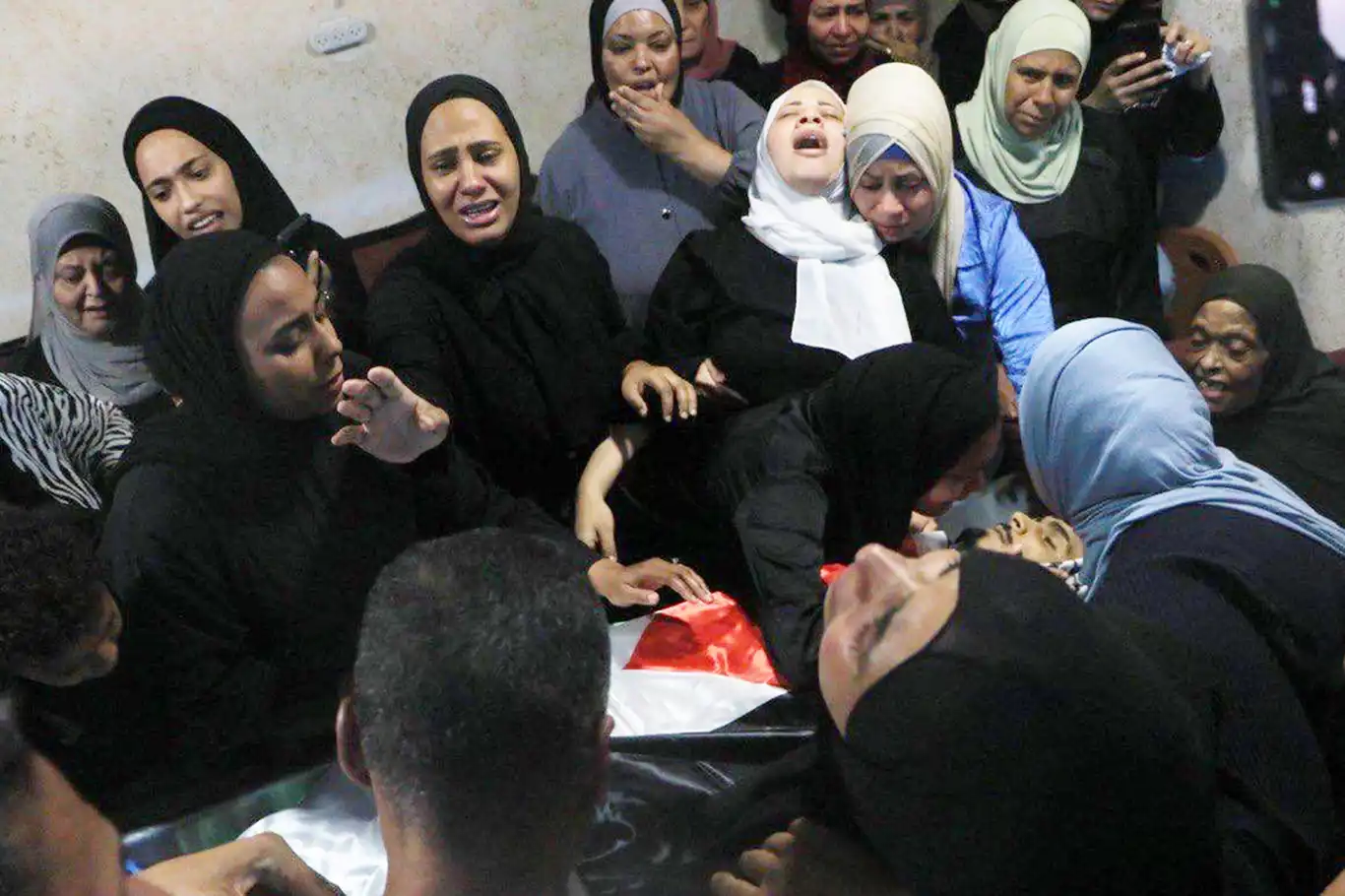Massacre in Rafah: Israeli forces kill over 30 civilians at aid distribution point in Gaza


Israeli occupation forces launched a deadly assault early Sunday on a humanitarian aid distribution point in Mawasi, Rafah, in the southern Gaza Strip, killing more than 30 Palestinians and wounding over 150 others, according to local reports.
The victims were among hundreds of desperate civilians who had gathered at the distribution site operated by the Gaza Humanitarian Foundation in search of food and basic supplies, as the territory continues to endure crippling starvation under Israel’s ongoing blockade and military siege.
This latest atrocity marks a disturbing escalation, bringing the total number of Palestinians killed at so-called “aid distribution points” to 47 in less than a week, with over 255 wounded. Human rights advocates and Palestinian officials are calling it a deliberate targeting of civilians under the guise of humanitarian coordination.
"Mass Death Traps," Not Aid Points
In a strongly worded statement, the Gaza government’s media office condemned the attacks as “mass death traps rather than humanitarian relief points,” accusing Israel of weaponizing aid to manipulate and endanger Gaza’s starving population.
“What we are witnessing is not accidental,” the statement read. “This is a systematic and malicious strategy—using food and survival as tools of war, blackmailing a starving population, and luring them into exposed zones for deliberate targeting.”
The media office held both Israel and its main backer, the United States, fully accountable for what it described as war crimes. It claimed that the so-called humanitarian zones are not neutral or safe but are “monitored, managed, and militarily exploited by the Israeli occupation, with political and financial backing from Washington.”
Widespread Bombardment Continues
In addition to the massacre in Rafah, Israeli warplanes and artillery unleashed a wave of attacks across the Gaza Strip overnight. In the southern city of Khan Younis, Israeli forces bombed the Qizan al-Najjar area while demolishing homes and civilian infrastructure in the eastern parts of the city.
Simultaneous strikes were reported in the Al-Tuffah neighborhood in eastern Gaza City, where heavy artillery fire and airstrikes targeted residential zones near Jabal Al-Sorani. Northwestern Gaza also came under fire, with Israeli warplanes bombing multiple locations amid an intensified military campaign.
A Humanitarian Catastrophe
As the war enters its ninth month, Gaza remains on the brink of total collapse. With border crossings sealed, international aid largely obstructed, and medical infrastructure decimated, humanitarian organizations warn of a looming famine and a public health disaster.
Observers say the targeting of aid centers underscores a broader strategy of collective punishment—an attempt to break the will of the population by turning humanitarian relief into a battlefield.
"This is not a war against fighters. It is a war against civilians—against children, against hunger-stricken families, against a population trying to survive," said a spokesperson for the Gaza Humanitarian Foundation. "The world cannot look away."
Call for International Action
Palestinian officials and international legal experts are urging the United Nations and the International Criminal Court to launch immediate investigations into what they describe as crimes against humanity.
“These atrocities are not just breaches of international law; they are a moral stain on the conscience of the world,” said the Gaza media office. “There must be accountability, and there must be justice—for the martyrs, for the wounded, and for the millions still trapped under siege.” (ILKHA)
LEGAL WARNING: All rights of the published news, photos and videos are reserved by İlke Haber Ajansı Basın Yayın San. Trade A.Ş. Under no circumstances can all or part of the news, photos and videos be used without a written contract or subscription.
The international humanitarian organization IHO EBRAR has distributed essential food aid packages to hundreds of vulnerable families across Ethiopia, providing critical relief in regions severely affected by food insecurity and widespread hardship.
Two US service members and a US civilian were killed, and three other American troops were injured, in an ambush carried out by an ISIS (Daesh) gunman in Syria, the US Central Command (CENTCOM) said on Saturday.
Venezuelan Defense Minister Vladimir Padrino López has sharply accused the United States of deliberately escalating tensions and seeking to provoke a military conflict in Latin America and the Caribbean.
Four Palestinians were killed on Saturday afternoon after an Israeli drone bombed a civilian vehicle near the Nabulsi junction, southwest of Gaza City, in what Palestinian sources described as a fresh violation of the ceasefire agreement.